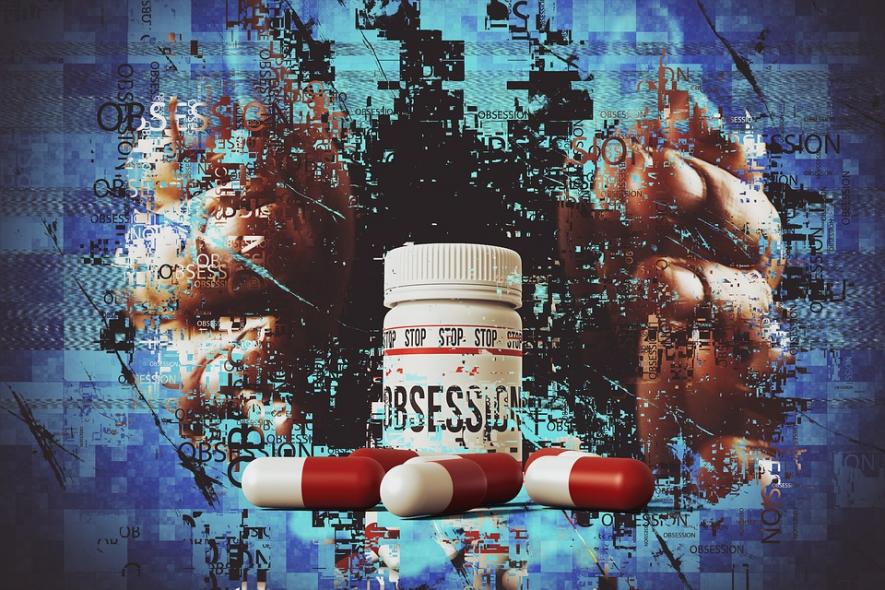A New Face of Addiction in Kashmir
By: Javid Amin | 21 October 2025
Prescription drug abuse, once considered a fringe issue, has now entered the mainstream of Kashmir’s public health crisis. Traditionally overshadowed by heroin and synthetic narcotics, pharmaceutical abuse is quietly reshaping patterns of addiction.
Recent reports and investigations reveal that courier services—once a lifeline for online orders—are now being exploited as conduits for trafficking addictive medications. Drugs meant for legitimate therapeutic use are slipping into the hands of youth, creating a legal high with dangerous consequences.
Couriers as Unwitting Drug Mules
Addictive prescription drugs like Tramadol, Spasmo-Proxyvon, Alprazolam, and Codeine-based syrups are increasingly being purchased online and delivered to homes via courier networks.
-
Ease of access: Users can order pills with minimal verification or through fake prescriptions.
-
Disguised shipments: Packages often arrive under generic labels, bypassing scrutiny.
-
Risk-free distribution: For sellers and users, the legal ambiguity of online pharmacies makes couriers an appealing channel.
Dr. Sameer Bhat, a public health expert, warns:
“Couriers are unwittingly becoming accomplices in addiction. Packages delivered to doorsteps bypass pharmacies, oversight, and safeguards.”
Regulatory Loopholes and Lapses
Several factors contribute to this alarming trend:
-
Weak e-pharmacy regulations: Online platforms often lack stringent identity verification, prescription checks, or monitoring mechanisms.
-
Courier oversight gaps: Delivery personnel rarely verify contents, making controlled substances easy to move anonymously.
-
Fake prescriptions: Youth exploit fake or borrowed prescriptions to obtain large quantities of addictive medications.
-
Fragmented enforcement: Coordination between law enforcement, health authorities, and online platforms is limited, allowing illegal channels to flourish.
According to police records, seizures of prescription drugs from courier packages have increased by over 30% in the past year, signaling a rising network of silent distribution.
Shifting Patterns of Addiction
The crisis is more than just logistics—it reflects a profound shift in Kashmir’s addiction landscape:
-
From heroin to pills: As heroin and other narcotics become riskier and costlier, many youth are turning to prescription medications for similar effects.
-
Rising prevalence among students: Teenagers and college students increasingly seek Tramadol or Spasmo-Proxyvon to cope with stress or experiment recreationally.
-
Mental health overlap: Addiction to prescription drugs is accompanied by anxiety, depression, and social withdrawal, intensifying the public health burden.
De-addiction centers report a notable rise in patients seeking help for pill dependency rather than traditional narcotics, indicating a silent epidemic taking root.
Stories from the Ground
Interviews with healthcare providers and social workers highlight the human cost:
-
A counselor in Srinagar notes,
“Many young patients don’t even realize they’re addicted. They start with a few painkillers for minor ailments, then escalate to daily use.”
-
Families express shock at the rapid physical and psychological deterioration caused by drugs that are “legally available.”
These cases underline how prescription drugs, often assumed safe, are turning everyday homes into high-risk environments for youth.
The Way Forward
Experts stress that addressing prescription drug abuse requires a holistic, multi-pronged approach:
01. Stricter Monitoring of Couriers and E-Pharmacies
-
Mandatory prescription verification and digital records for every sale.
-
Random audits of courier deliveries containing medicinal products.
-
Collaboration between police, regulatory authorities, and platform operators.
02. Public Awareness Campaigns
-
Inform families and youth about the dangers of legal highs.
-
Educate schools and colleges on early signs of pill dependency.
-
Promote media campaigns highlighting safe medicine use and reporting mechanisms.
03. Rehabilitation and Counseling Support
-
Expand de-addiction facilities specialized in prescription drug abuse.
-
Train counselors to address psychological, social, and academic impacts.
-
Establish peer-support networks in schools, colleges, and communities.
04. Policy and Legislative Reforms
-
Introduce strict penalties for online and courier-based drug trafficking.
-
Develop state-level regulations for e-pharmacy platforms.
-
Encourage community policing and reporting frameworks for suspicious activity.
Editorial Reflection
This crisis is more than a law-and-order problem. It reflects:
-
Systemic neglect: Weak regulation has left couriers and e-pharmacies unmonitored.
-
Youth despair: Students and young adults are experimenting with substances as a form of escape.
-
Commodification of healing: Medications designed for recovery are being repurposed for recreation.
If unchecked, this new form of addiction threatens to erode the social fabric, exacerbate mental health issues, and increase the burden on already strained healthcare infrastructure.
Bottom-Line: Reclaiming Health, Homes, and Hope
Prescription drug abuse via couriers is a wake-up call for Kashmir. It demands swift regulatory action, public education, and robust rehabilitation frameworks.
Communities, families, law enforcement, and health authorities must work together to ensure that medications remain a tool for healing, not harm.
“The fight isn’t just against drugs—it’s against neglect, inattention, and the silence that allows addiction to flourish,” notes Dr. Sameer Bhat.
By acting decisively, Kashmir can stem this silent epidemic and restore hope to youth, families, and communities at large.




